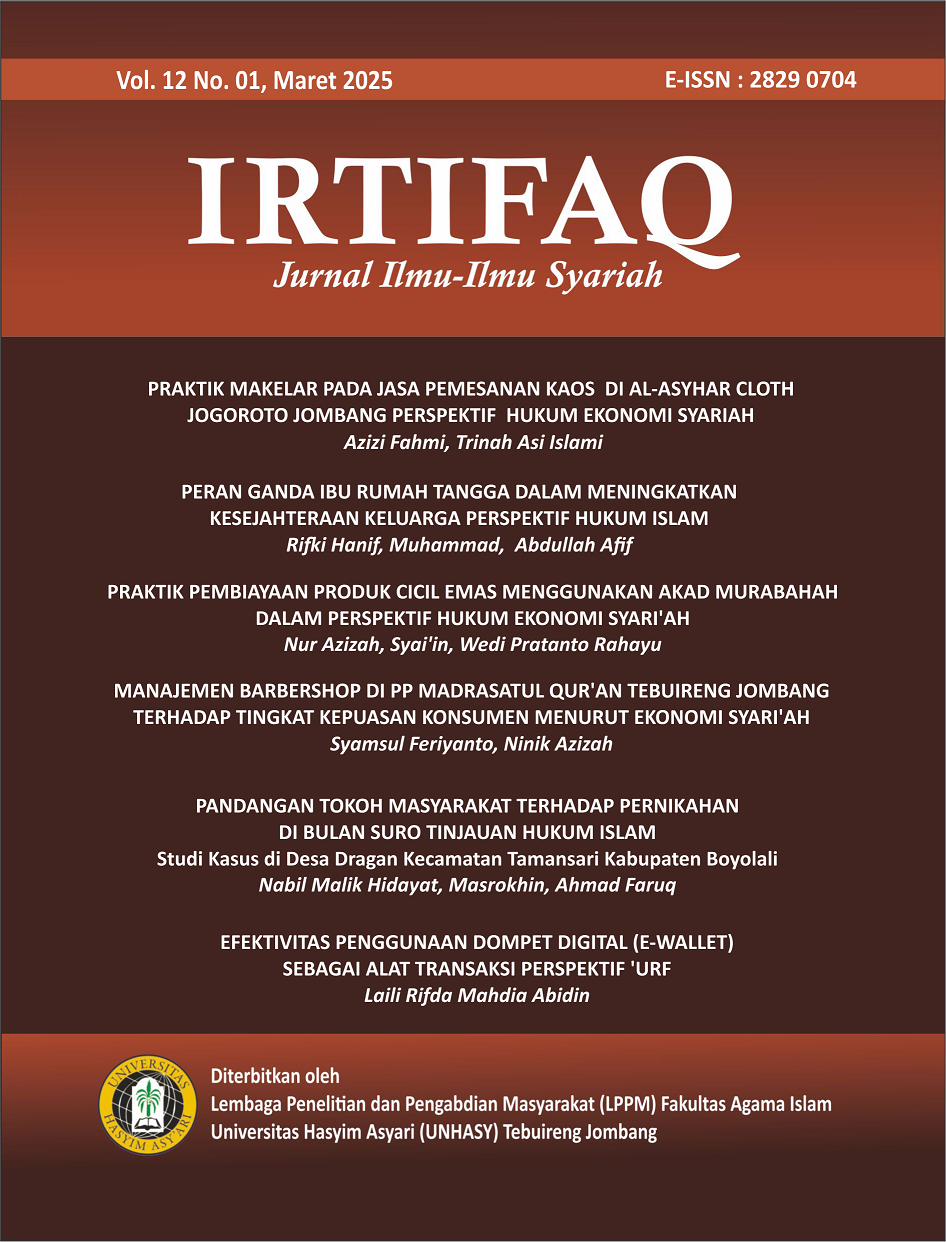PRAKTIK PEMBIAYAAN PRODUK CICIL EMAS MENGGUNAKAN AKAD MURABAHAH DALAM PERSPEKTIF HUKUM EKONOMI SYARI’AH
GOLD PRODUCT FINANCING PRACTICES USING MURABAHAH AGREEMENTS IN SYARI'AH ECONOMIC LEGAL PERSPECTIVE (Case Study at Bank Syariah Indonesia Cempaka Mas Jombang Branch Office)
Abstract
Banking is currently developing a lot, especially banking with sharia principles, this is to avoid elements of usury, gharar, haram and wrongdoing. Bank Syariah Indonesia is here by selling Gold Installment Financing products with the practice of murabahah contracts. Murabahah is the sale and purchase of goods at the original price with additional agreed profits. The aim of this research is to; 1) analyze the practice of financing gold installments using a murabahah contract at Bank Syariah Indonesia Cempaka Mas Jombang Branch Office. Second, to find out the perspective of sharia economic law on the practice of financing gold installment products using a murabahah contract at Bank Syariah Indonesia, Cempaka Mas Jombang Branch Office. The method used is a qualitative research method, which uses a conceptual approach and a phenomenological approach. Data collection from this research used observation techniques, interviews, documentation and library data. The results of this research are that in the practice of financing gold installments at Bank Syariah Indonesia Cempaka Mas Jombang Branch Office using a murabahah contract, there are four elements; 1) parties involved in gold installment financing, 2) object of financing, 3) agreement/contract
Downloads
Downloads
Published
How to Cite
Issue
Section
License

This work is licensed under a Creative Commons Attribution 4.0 International License.
Ini adalah sebuah jurnal akses terbuka, yang berarti bahwa semua konten yang tersedia secara bebas tanpa biaya kepada pengguna atau / nya lembaganya. Pengguna yang diizinkan untuk membaca, download, menyalin, mendistribusikan, cetak, mencari, atau link ke teks lengkap dari artikel, atau menggunakannya untuk tujuan yang sah lainnya, tanpa meminta izin terlebih dahulu dari penerbit atau penulis.
This is an open access journal, which means that all content is freely available without charge to the user or his/her institution. Users are allowed to read, download, copy, distribute, print, search, or link to the full texts of the articles, or use them for any other lawful purpose, without asking prior permission from the publisher or the author.


